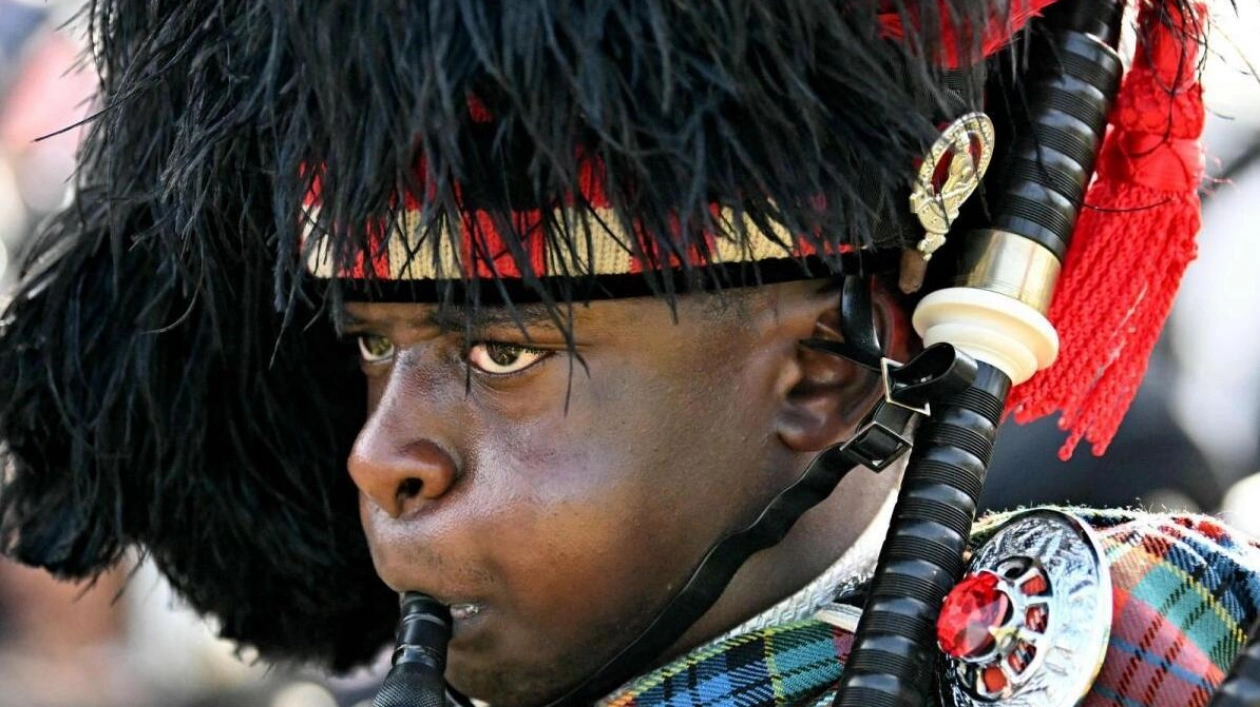A musician from a music band plays the Bagpipes during the annual Braemar Gathering in Braemar, central Scotland, on September 7, 2024. – AFP
The Highland bagpipe is deeply rooted in Scottish culture and history, renowned for its distinctive and powerful sound that once accompanied troops during pivotal moments like D-Day. However, this iconic wind instrument is gradually losing its voice as demand wanes and machine-made alternatives supplant traditionally crafted ones, relegating their use primarily to ceremonial events.
In Edinburgh, just off the historic Royal Mile that stretches from the city's imposing castle to the Palace of Holyroodhouse, a faded storefront sign marks the location of Kilberry Bagpipes, an artisan bagpipe maker. Inside, Ruari Black is among the last few craftsmen in Edinburgh who still know how to handcraft the instrument.
"At Kilberry, we're one of the last artisan bagpipe makers—certainly in Edinburgh, the capital of Scotland—but probably all around the world," Black told AFP while shaping a pipe with a lathe. "It's got a big sound, it'll fill a room," he said, describing the nine stages involved in making the intricate instrument. After boring and shaping the pipes, they are fitted with mounts and ferrules before adding the finishing touches and setting up the components. The entire process takes about a week, with the craftsmen working on multiple bagpipes simultaneously.
The finished product boasts "our distinct sound," according to Black. "Every set, we're striving to have that consistency across, to make sure they're sounding the same." Each handmade set also has "its own character, in terms of looks, in terms of feel," making it appealing to customers worldwide. The current wait time for an artisan Highland bagpipe is two years on Kilberry's website.
"Customers are coming to us for a set of handmade pipes; they're generally coming for the handmade aspect," Black explained. "They're wanting the sound we strive to produce—the thing we want to be known for." Clients range from experienced pipers to newcomers looking to purchase their "first practice chanter"—the part of the bagpipe with finger holes where the melody is played.
While bagpipes have been documented in Scottish history for about 600 years, their origins remain uncertain. Various forms found around the world include the Irish bagpipe, the Northumbrian smallpipes, and the Turkish tulum. In Brittany, northwest France, a band known as a bagad is composed of Breton bagpipes, or biniou, and drums. However, the Highland bagpipe remains the most well-known and has had a significant impact on the military music of Britain and Commonwealth countries.
Every year, the Royal Edinburgh Military Tattoo—a series of military musical performances featuring massed pipe bands—takes place at the top of the Royal Mile. The last song played at Queen Elizabeth II's funeral in 2022 was a rendition of the lament "Sleep, Dearie, Sleep," performed by her personal piper. Despite its enduring cultural significance, the traditionally handmade Highland bagpipe is disappearing. Unlike Kilberry, most other producers now rely on machinery.
However, Black noted that it is easy to distinguish between the instruments, with machine-made ones lacking the "hand-turned" shapes and decorative designs that his bagpipes feature. Despite having fewer workers and taking longer to make each bagpipe, they "try and keep the cost down for customers to still have a handmade instrument," said Black. "So it's kind of up to the customer to choose us over mass-produced." Some mass-manufactured bagpipes can also be identified by their use of imitation ivory for the mounts, according to Black.
The artisans are striving to be more sustainable without compromising on quality. For Black, there is no substitute for making bagpipes by hand. "Keeping it handmade means a lot to me—it's the way it's always been done. It just feels right," he added. "For something that's completely dying out, it's not nice to be one of the last... but it's nice to be carrying that on."
Source link: https://www.khaleejtimes.com






